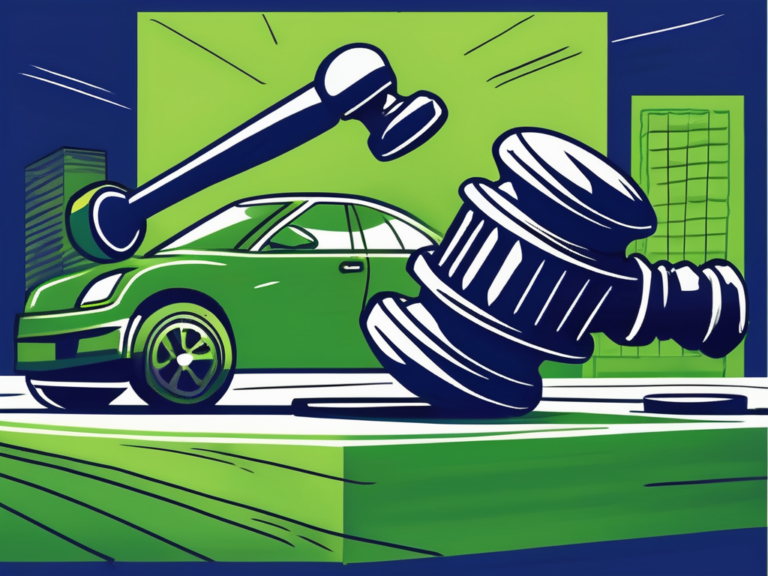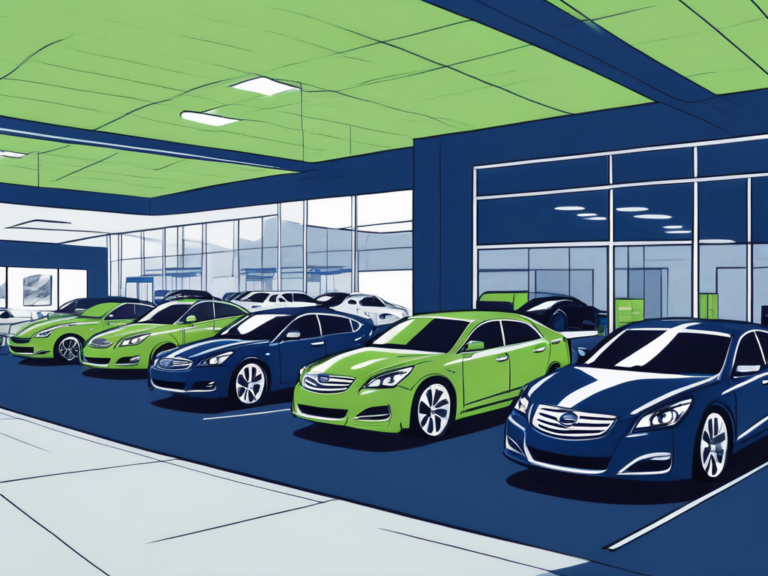Talk to Sales: (401) 200-6026

In today’s highly competitive automotive industry, effective sales techniques are essential for businesses to thrive. However, some car sales techniques can be annoying and counterproductive, ultimately driving customers away. To ensure your business’s success and reputation, it’s crucial to identify and eliminate these annoying sales practices. By understanding the impact of these techniques, recognizing them, and focusing on customer-centric approaches, you can transition towards more effective sales strategies that foster trust and long-term relationships with potential buyers. In this article, we will explore the five car sales techniques that you need to stop annoying customers with and discuss alternative methods to boost your sales and customer satisfaction.
Understanding the Impact of Annoying Sales Techniques
Sales techniques have a significant impact on the overall customer experience. When customers are subjected to annoying sales practices, it creates a negative perception of your brand and can result in lost sales and damaged relationships. Let’s delve deeper into the adverse effects these techniques can have.
It’s important to recognize that the effects of annoying sales techniques extend beyond just the immediate transaction. Customers who feel pressured or manipulated during the sales process are more likely to develop long-lasting negative associations with your brand. This can lead to a loss of customer loyalty and advocacy, as well as potential damage to your brand’s reputation in the long run.
The Negative Effects on Customer Experience
Annoying sales tactics, such as high-pressure techniques, can make customers feel trapped and uncomfortable. Instead of fostering trust and building rapport, these tactics create a sense of unease and push customers away. When potential buyers feel like they are being coerced into making a decision, it diminishes their overall experience and reduces your chances of closing the sale.
Furthermore, annoying sales techniques can have a ripple effect on customer retention. Customers who have had negative experiences with pushy sales tactics are more likely to seek out alternative providers in the future, leading to a loss of repeat business and potential referrals. Building a loyal customer base requires a commitment to ethical and customer-centric sales practices that prioritize long-term relationships over short-term gains.
How Annoying Techniques Can Damage Your Brand
At its core, a brand is built on trust and reputation. Annoying sales techniques can erode this trust and tarnish your brand image. When customers have a negative experience with pushy salespeople or encounter deceptive tactics, they are likely to share their dissatisfaction with others. This can harm your brand’s reputation, resulting in a loss of both current and potential customers. It’s essential to prioritize customer-centric techniques that enhance your brand’s image and foster positive word-of-mouth marketing.
Moreover, in today’s interconnected digital landscape, the impact of annoying sales techniques can be magnified through social media and online reviews. Customers who feel mistreated or manipulated are quick to share their experiences on platforms that reach a wide audience. This can lead to a snowball effect of negative publicity that is challenging to overcome. Protecting your brand’s integrity requires a proactive approach to sales that values transparency, honesty, and respect for the customer’s needs and preferences.
Identifying Annoying Car Sales Techniques
To put a stop to annoying sales techniques, you must first identify them within your sales process. Let’s explore three common practices that tend to annoy customers and drive them away.
High-Pressure Sales Tactics
One of the most off-putting sales techniques is the use of high-pressure tactics. Pressuring customers into making a purchase or rushing them through the decision-making process can leave them feeling overwhelmed and distrusting. Take a step back and allow potential buyers to explore their options at their own pace, providing guidance and support without applying unnecessary pressure.
Overuse of Sales Jargon
While industry-specific jargon may be familiar to salespeople, it can confuse and alienate customers. Overusing complicated terminology can create a barrier between the buyer and seller, making the purchasing process feel intimidating. Instead, communicate in clear, simple language that customers can easily understand, ensuring transparency and fostering a comfortable environment for making informed decisions.
Lack of Transparency in Pricing
When it comes to making a significant financial investment, customers expect transparency in pricing. Hiding fees, add-ons, or pricing details can make customers feel deceived and irritated. To avoid this, provide clear and transparent pricing information upfront, ensuring that potential buyers have a complete understanding of the costs involved. This approach builds trust and eliminates any hidden surprises that can annoy customers.
Sell cars on the lot faster with AutoRaptor
Know if we’re the right fit within 10 minutes
The Importance of Customer-Centric Sales Techniques
Transitioning from annoying sales techniques to customer-centric approaches can have a profound impact on your business’s success. By prioritizing the customer’s needs and experience, you can create long-lasting relationships, nurture repeat business, and establish a positive brand reputation.
Building Trust with Potential Buyers
One of the fundamental aspects of a successful sale is building trust. Taking the time to understand a customer’s needs and preferences demonstrates genuine interest and a commitment to the customer’s satisfaction. By actively listening and providing tailored solutions, you can build trust and create a positive buying experience, making customers more likely to recommend your business to others.
Fostering Long-Term Customer Relationships
Instead of focusing solely on making the initial sale, shift your perspective to nurture long-term customer relationships. By staying in touch with your customers, offering aftersales service and support, and providing valuable information, you can become their trusted automotive advisor. These ongoing relationships lead to repeat business and generate positive referrals, strengthening your brand and driving sustainable growth.
Transitioning from Annoying to Effective Sales Techniques
Now that you understand the negative impact of annoying sales techniques and the importance of customer-centric approaches, it’s time to transition towards more effective methods. Making this shift requires training, implementing transparent pricing strategies, and reassessing your sales process.
Training for Empathetic Selling
Empathy is a crucial trait for successful salespeople. Invest in training programs that emphasize empathetic selling, enabling your team to truly understand and connect with customers. Train your sales staff to actively listen, ask open-ended questions, and demonstrate genuine care and concern for the customer’s needs. By incorporating empathy into your sales approach, you can create a comfortable and trust-building experience for potential buyers.
Implementing Transparent Pricing Strategies
To address the issue of pricing transparency, develop clear and straightforward pricing strategies. Avoid hidden fees and surprise expenses by clearly outlining the costs associated with purchasing a vehicle. Provide detailed breakdowns of pricing elements, ensuring that customers have a comprehensive understanding of what they are paying for. By being transparent about pricing, you build trust and demonstrate integrity, elevating your business above competitors who may still rely on obfuscation.
Measuring the Success of Your New Sales Techniques
After implementing customer-centric sales techniques, it’s crucial to measure their effectiveness. Tracking customer satisfaction and evaluating sales performance will provide valuable insights into your progress and allow you to make necessary adjustments. Let’s explore how to measure the success of your new sales techniques.
Tracking Customer Satisfaction
Implement customer satisfaction surveys or feedback systems to gauge how your new sales techniques are received. Monitor customer reviews, ratings, and testimonials to identify trends and areas for improvement. Gathering this feedback will enable you to refine your approach, ensuring continued customer satisfaction and loyalty.
Evaluating Sales Performance Post-Change
Measuring the performance of your sales team is essential to monitor the effectiveness of your new techniques. Analyze sales data, conversion rates, and customer feedback to evaluate the impact of your changes. Look for improvements in sales figures and customer satisfaction metrics, and address any areas that may still require attention. Continuous evaluation and adjustment will contribute to the continued growth and success of your business.
In Conclusion
Eliminating annoying car sales techniques is crucial for building trust, enhancing customer satisfaction, and creating long-term relationships. By understanding the negative impact of these techniques, identifying and eliminating them, and implementing customer-centric sales approaches, you can improve your business’s reputation, drive sales, and ultimately ensure the success and sustainability of your automotive brand.
Transform Your Sales Approach with AutoRaptor
Ready to leave behind those outdated and annoying sales techniques for good? Discover how AutoRaptor’s Dealership CRM can revolutionize your sales process, enhance customer relationships, and increase your sales efficiency. Book a quick demo with our experts to get a personalized tour of our CRM’s features and see firsthand how dealerships save an average of $10.8k per year by making the switch. Don’t miss the opportunity to make a positive change in just 10 minutes—schedule your demo today and take the first step towards a more successful and customer-friendly sales strategy.
Subscribe to our Newsletter
Resources to help your dealership convert more leads into sales, retain more customers, and market inventory smarter, straight to your inbox every Sunday.




